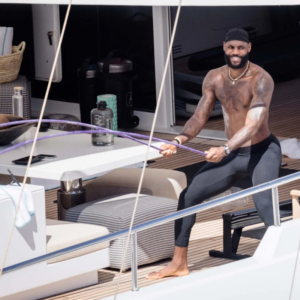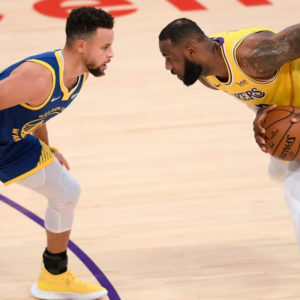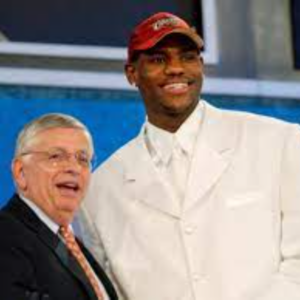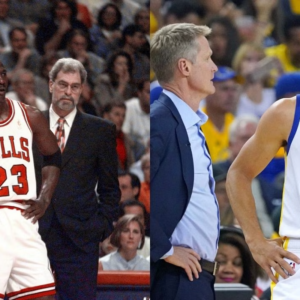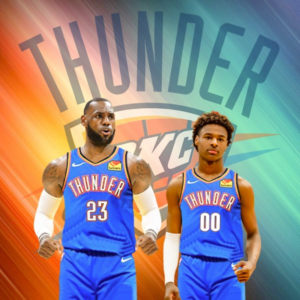LeBron James’ pursuit of Kareem Abdul-Jabbar is about to end.
When the Lakers tip off Tuesday night, the 38-year-old four-time MVP and four-time NBA champion will be just 36 points shy of eclipsing The Captain, one of the all-time great Lakers and all-time great players – and for nearly 40 years, the league’s greatest scorer. James’ march to pass 38,387 has felt inevitable for some time, a sentiment James reflected last week in New York when he told a gaggle of reporters, “I’m going to do it. I mean, it’s just a matter of time when I’m going to do it.”
But even though James is now venturing beyond a threshold where no NBA player has been before, he continues another chase – the one that has defined his career.
It’s Michael. It has always been Michael.
His case in one of the world’s top barbershop debates is about to get a new injection of statistical evidence, adding to his records, championships, Finals MVPs, All-Star appearances and every other conceivable dimension to the argument that James is the greatest basketball player of all time (colloquially known as “the G.O.A.T.”). While reasonable minds can disagree – different generations might make cases for Bill Russell, Abdul-Jabbar or even Kobe Bryant – Chicago Bulls legend Michael Jordan is widely considered the benchmark for greatness in basketball, and to many, sports in general.
But in a battlefield that spans living rooms and bar top counters all over, James’ forthcoming crowning as the leading scorer in NBA history might push some reluctant holdouts over to his side of the fence. Dirk Nowitzki, who sits four spots and nearly 7,000 points down the list from James, encapsulated the dilemma he and others are facing as James’ longevity – and his seemingly never-ending prime – demolishes even the records once considered unbreakable.
“I always say Michael Jordan is the G.O.A.T.,” he said with a stiff, uncomfortable laugh, as if being forced to confess. “If (James) really surpasses Kareem in the scoring record, I’m sort of running out of arguments for Michael. I mean what this guy has done is nothing short of incredible.”
To be clear: James himself is not debating. Considering Nowitzki’s shifting assessment of his place in the pantheon last month, James started with a stock answer.
“I’m gonna let everybody else decide where (the scoring record) puts me,” he told Southern California News Group in an exclusive interview. “It’s not for me to say now, ‘OK I’m this or that.’”
Then he paused. And then, he bit.

“What I bring to the table as a basketball player … I feel like I’m the best basketball player that ever played the game,” he said. “That’s just my confidence, that’s just what I bring to the table, what I possess. But as far as if the scoring record gets me to another level, I don’t know.”
James already believes he’s the greatest. The battle is convincing everyone else.
Jordan and James never shared the court together, coming tantalizingly close: In 2003, Jordan retired (for the third time), and later that year, the much-ballyhooed James was drafted first overall. So the battle is fought in a figurative one-on-one of legacies: an older generation pointing to the hand-checking physical defenses Jordan faced and his 6-0 Finals record, while James’ backers tout his accomplishments as a distributor and a scorer, his four Finals MVPs with three different teams, and his continued greatness 20 years into his career.
One figures James, who idolized Jordan as a child and said before he thought of him as “Black Jesus,” watched the 10-part series “The Last Dance” with mixed emotions – delight as a fan, but strategizing as a competitor with a film crew following him throughout his Lakers tenure as well. Jordan and James are already playing a chess match, shaping how their careers are remembered and preserved.
One thing proponents of James argue over and over again is that he came into the league at 18 under all the pressure in the world, hyped as one of the greatest high school prospects ever, trumpeted by magazine covers and nationally televised games – hailed as a teenager as “The Next Michael Jordan.”
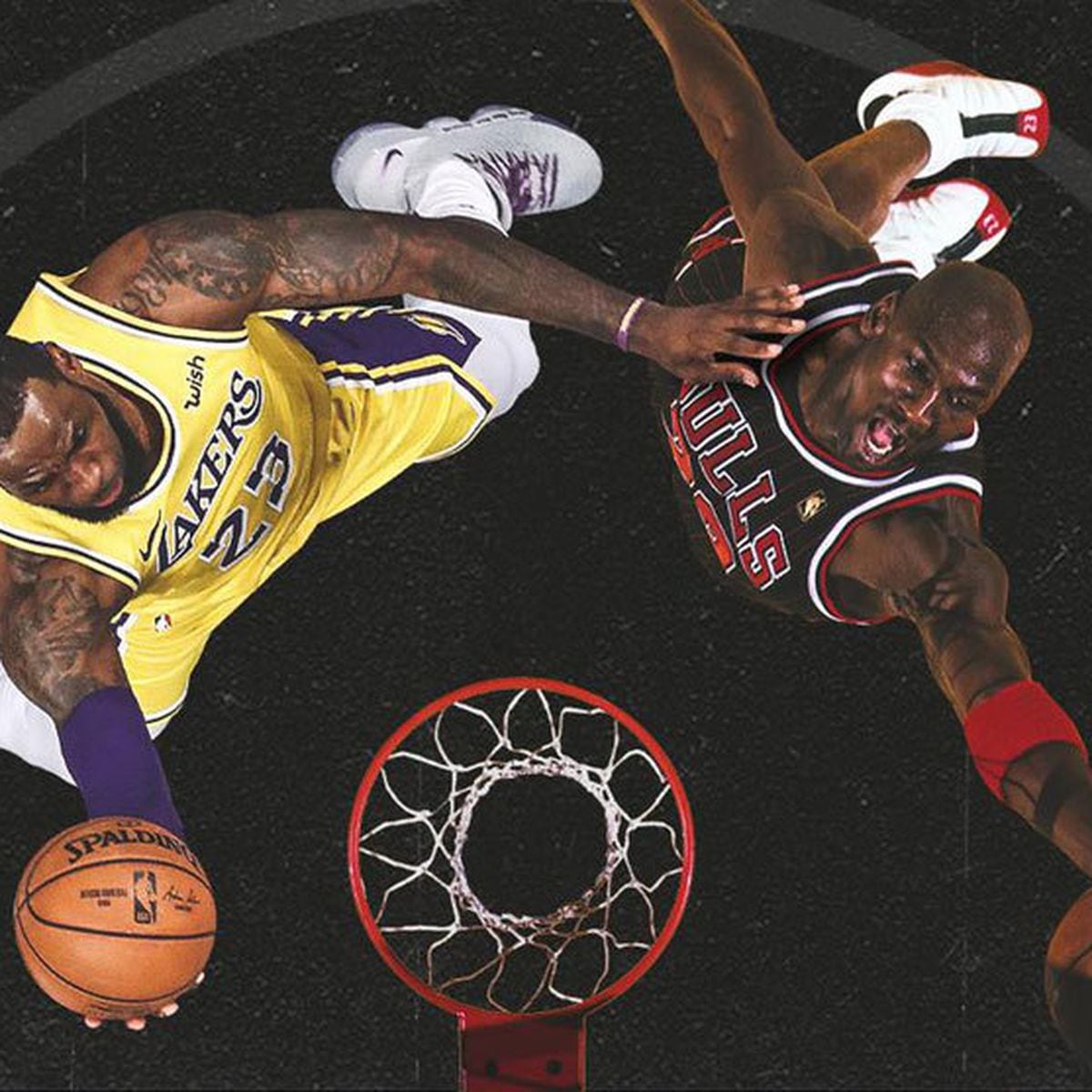
The path to greatness is littered with phenoms who fell short of the hype. Not James, who Philadelphia coach Doc Rivers – in the same breath while still calling Jordan the greatest – thinks no career tops what James has done already.
“I think he’s going to have the greatest career of all time,” Rivers said. “I think he’s already had it. I think Michael’s the greatest of all-time, but that doesn’t take anything away from LeBron. LeBron’s had the greatest career. If my dad was alive, he’d be staring at me right now and yelling, ‘Bill Russell.’ You know, but I’m saying numbers and everything-wise, has anyone had a better career than LeBron? I can’t think of anyone.”
Even some of Jordan’s contemporaries are starting to express similar sentiments, even if they refuse to budge on Jordan’s G.O.A.T. status. TNT commentator Charles Barkley, a Hall-of-Famer who had the misfortune of playing at the same time as Jordan, said last year as the season began: “My generation is always gonna think Michael is the greatest. I think (LeBron’s) story is the greatest sports story of all time.”
But James’ assault on NBA records seems likely to bolster his case in the distant future, when generational biases are less fervent and are more yielding to powerful statistical arguments. If he manages to play even through two more seasons, the length of his current contract, he’ll reasonably own all of the NBA’s scoring-relevant records, including the scoring record itself with thousands of points of cushion.
He’s also the only top-10 scorer who is also top 10 in assists (he recently moved up to fourth). His prime is already unfathomable compared to the field: He’s averaged at least 25 points, 6 rebounds and 6 assists in 19 of his 20 NBA seasons, including this one – the next closest is Oscar Robertson, who had nine of those seasons (Jordan had three). Dallas’ Luka Doncic has hit those averages in four of his five NBA seasons so far, and he might be the active player best positioned to catch James someday. But he made a skeptical face last month when asked if he ever thought about what it might take to actually do it as he sits almost 30,000 points behind him at the moment.
“I have no goals,” he laughed. “Probably as long as my body can hold. But like I said, 20 years, it’s a lot of years.”
There are more eye-popping gaps, such as James’ 19 All-Star appearances to Jordan’s 14, or his 18 (and likely 19) All-NBA teams to Jordan’s 11. The counter is the heights Jordan reached, like his 10 scoring titles, his five league MVP awards (to James’ four), his six Finals MVP awards or his nine All-Defensive First Team selections and Defensive Player of the Year award (James has five first-team honors, one second-team honor and never won a DPOY). Even though James has more Olympic medals, three to Jordan’s two, the 2004 bronze isn’t a flattering statistical edge. A less meaningful, yet illustrative, streak: James passed Jordan’s mark of 866 consecutive double-digit games in 2018, and it’s continued from 2007 to today at 1,139 and counting.
But James’ longevity in and of itself is an achievement, several James backers are quick to point out. At 42, Miami Heat reserve Udonis Haslem (one of James’ former teammates) is one of the few who can understand the challenges of keeping up with 20-somethings for decades. It’s been difficult enough for him with just six appearances this season; James remains a franchise player all these years later, averaging more than 36 minutes per game.
Seeing James’ dedication and discipline firsthand in Miami, Haslem told SCNG: “I pretty much figured by the time he was done, he’d break every record that could possibly be broken in the NBA.
“It’s just a testament to his work ethic, and I’ve been able to watch that firsthand and implement it in some of my work,” he added. “It’s not easy to stick around some of these guys to play 20 years. Whether you’re playing 30 minutes a night, or whether you’re not playing that much. You gotta be able to get up and put your body through the practices and training camps and the film sessions and different things like that. It takes a special person at a certain age to be able to do that.”
Whereas the narrative around Jordan is that he wished to dominate the stars of his era, James’ critics fire at him for looking for superstar team-ups: his league-shifting decision to join Dwyane Wade and Chris Bosh in Miami; convincing the Cavaliers to trade for Kevin Love during his second stint in Cleveland; saying it would be “amazing” to play with Anthony Davis when he first landed with the Lakers. Even now, James made waves over the last week by openly pining for former teammate Kyrie Irving, admitting on Monday that he was “disappointed” when the Lakers failed to trade for him.
This has led to what ESPN’s Brian Windhorst, a longtime chronicler of James, has called the “organizational fatigue” James leaves in his wake, cycling through his franchises’ resources in a frantic bid to surround himself with talent and veterans, then when they’re stuck, he leaves. He’s defied his four-year cycles to sign a contract extension through 2025 with the Lakers, but their struggles to field a competitive roster have strained James’ patience.
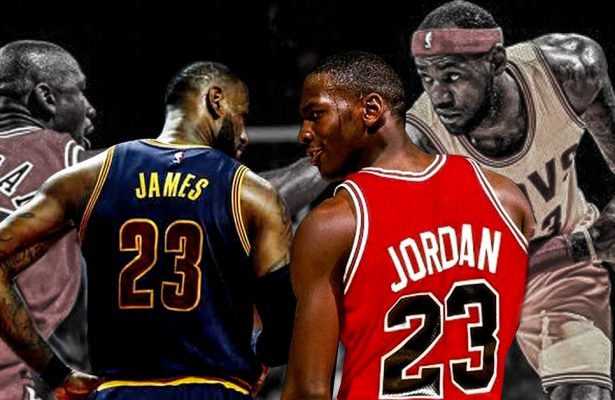
But while Jordan’s run with the Bulls (with a year-and-a-half retirement squeezed between three-peats) might seem to defy James’ more superstar-as-GM approach, he too weighed in on personnel. According to veteran scribe Sam Smith in his famous biography “The Jordan Rules” lays out that Jordan at points even was open to the Bulls trading Horace Grant or Scottie Pippen, two of his most famous teammates. For a sense of how teammates feel about Jordan now, Pippen’s criticisms of “The Last Dance” offer a tough view.
So where does all that leave James, who will never match Jordan’s undefeated Finals mark, and is struggling to match his six overall rings despite 10 Finals appearances? Who, while he will be the NBA’s leading scorer in the playoffs and the regular season for likely decades to come, might never loom as the pure force that many regard Jordan as in his prime?
James’ teammate Anthony Davis sits at an interesting crossroads: As his teammate, Davis came to respect James’ greatness from the closest possible seat. But he’s from Chicago, the throbbing heart of Jordan’s empire and claim to the G.O.A.T. status.
But one of the biggest reasons Davis sees James as the G.O.A.T. is actually sentiment – an emotional connection to watching James that is now bolstered by playing alongside him and seeing the statistics pile up. Watching James live and in the moment is more powerful than watching old clips and games of Jordan’s, who retired for the first time in 1993, the same year Davis was born.
“I’m a big Jordan guy. But also growing up? I was all LeBron,” Davis said. “The shoes, the number, everything. Because that’s who I was seeing every day. I didn’t see Jordan.”
Davis also offers what is a somewhat beside-the-point workaround of the debate: He believes there can be multiple “G.O.A.T.s”, even though the superlative label implies that there can be only one. It points to a trend that more players are going to as a point of nuance, perhaps because they’re more reluctant to take a side with James increasing some key statistical gulfs.
How would Jordan hold up in the modern era with players taking more 3-point shots and playing less physical defense? Would he ever have left the NBA for baseball in an era of more lucrative contracts? Or might the emotional drain of the social media era have impacted his career in some indefinable way? It can never be fully known, Davis argued to SCNG.
“It’s two different eras,” Davis said. “I’m always curious to see guys now, older guys they played but they always go back to Mike, like, ‘MJ was MJ.’ Alright, well Bron is Bron. It’s a good debate.”
Taking the scoring record isn’t going to resolve it – though it might be one of the most telling symbols of James’ career accomplishments. Building up his statistical gaps on Jordan isn’t the reason James wants to play, though: He’s most interested in competing for more championships, which would bolster his case against Jordan in a wholly different way.
But does topping his idol matter in hearts and minds? “Hell yeah, it matters,” former teammate and Dallas Mavericks assistant coach Jared Dudley told SCNG.
“In the beginning, he didn’t say, ‘Hey I want this record.’” Dudley said. “But he knows through time, records are made to be broken. This was one where you said, ‘Oh man, I could never have this one.’ So possibly winning another championship, the more All-Stars. He knows he’s accumulating. This is his legacy. His legacy is still growing.”
Another testament to James: Whereas he was once thought of as the “Next Jordan,” new prospects are now framed as the “Next LeBron.” He got to meet one in October, when a giddy 7-foot-4 Victor Wembenyama excitedly shook his hand.
But as much as scouts might love Wembenyama or the other greats to come, James is secure in the legacy he’s already erected, and what people will remember even after that almost difficult-to-imagine day when he has finally hung up his Nikes.
James grinned as he wrapped up an interview last month, stepping out of another arena as he continued his campaign toward immortality. He parted with one final line, the argument he believes trumps all others:
“Y’all never seen anybody like me.”

